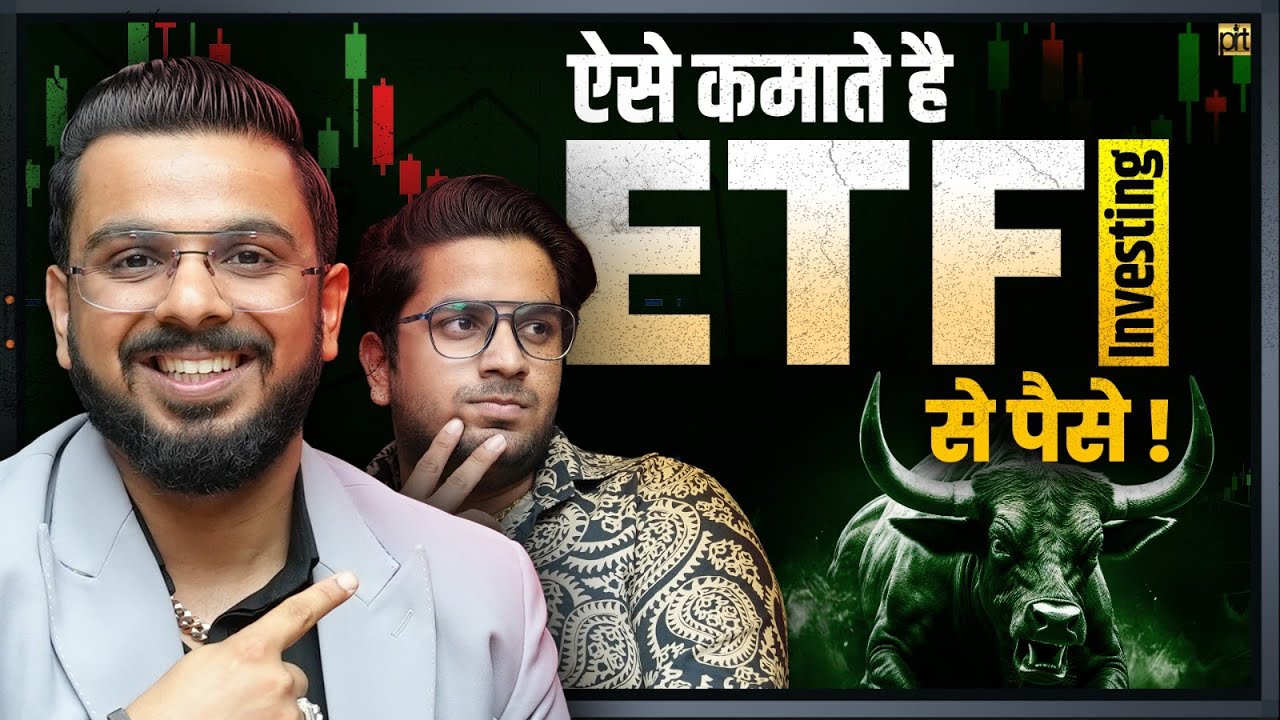The Best Investment I've Ever Seen
Summary
TLDRIn the Joseph Carlson show, the host discusses why ETFs (Exchange Traded Funds) are the ultimate investment, highlighting their advantages over individual stocks and real estate. He emphasizes the benefits of diversification, low entry barriers, and self-rebalancing nature of ETFs, and recommends specific ETFs like Schwab's US Large Cap Growth ETF (SCG) and the Dow Jones 100 Dividend Payer Index (HD), while warning against gimmicky or actively managed ETFs.
Takeaways
- 📈 The speaker believes that ETFs (Exchange Traded Funds) are the best investment ever, surpassing individual stocks and even real estate.
- 🏦 The speaker has a background in stock picking and investing in companies like Apple, Microsoft, and Visa, but still emphasizes the benefits of ETFs.
- 💼 The speaker manages two portfolios: a passive income portfolio and a growth-focused portfolio called the 'Story Fund', both of which perform well.
- 💰 The speaker has nearly a million dollars invested in individual stocks, but also invests in ETFs for retirement and custodial accounts, highlighting the importance of ETFs in a diversified portfolio.
- 🏘️ The speaker compares ETFs to real estate, noting that ETFs have lower barriers to entry, instant diversification, and are self-cleansing through regular rebalancing.
- 🌐 ETFs offer advantages over individual stocks and real estate, such as lower entry costs, the ability to add incremental capital, and automatic diversification across hundreds of companies.
- 🔄 ETFs are self-balancing, with indexes like the Dow Jones US Large Cap Growth Total Stock Market Index rebalancing every six months to remove underperforming stocks and add new ones.
- 📊 The speaker recommends Schwab's US Large Cap Growth ETF (ticker: SCG) for its historical performance, low expense ratio, and inclusion of top-performing companies like Microsoft and Apple.
- 💡 The speaker also recommends a dividend-focused ETF, Schwab's High Dividend Equity ETF (ticker: HD), for conservative investors looking for steady income and capital preservation.
- ⚠️ The speaker warns against gimmicky ETFs, such as those managed by Ark Invest or covered call ETFs, which may offer high yields but can destroy net asset value and underperform the market.
Q & A
What does the speaker consider the best investment ever?
-The speaker considers the ETF (Exchange Traded Fund) as the best investment ever, as opposed to individual stocks or other investment options like real estate.
Why does the speaker prefer ETFs over individual stocks?
-The speaker prefers ETFs because they offer diversification, lower entry barriers, and automatic rebalancing, which reduces the risk associated with investing in individual companies.
What are some of the advantages of ETFs compared to real estate investments?
-ETFs have lower entry barriers, allow for incremental capital addition, provide instant diversification, and are self-cleansing through periodic rebalancing, unlike real estate which requires a large upfront payment, active management, and carries concentrated risk.
What is the speaker's background in investing?
-The speaker is mostly a stock picker, investing in individual companies based on principles similar to Warren Buffett, focusing on cash flows and earnings growth.
What are the two portfolios the speaker manages?
-The speaker manages a passive income portfolio and a growth-centered portfolio called the story fund, both of which have performed well due to investments in high-quality companies.
Why does the speaker invest in ETFs in his smaller accounts like retirement and children's custodial accounts?
-The speaker invests in ETFs in these accounts because he believes ETFs are a good way to diversify and manage investments passively without the need to pick individual stocks.
What is the main feature of ETFs that the speaker finds most advantageous?
-The speaker finds the self-cleansing or rebalancing feature of ETFs most advantageous, as it ensures that the portfolio always contains the best stocks based on the index's methodology without any active management from the investor.
Which ETF does the speaker consider the best in the world and why?
-The speaker considers Schwab's US Large Cap Growth ETF (ticker symbol: SCG) the best in the world because it follows the Dow Jones US Large Cap Growth Total Stock Market Index, which has shown good historical performance and follows a robust methodology for selecting and weighting growth stocks.
What are the main characteristics of the Dow Jones US Large Cap Growth Total Stock Market Index?
-The index focuses on US large cap growth stocks, uses a mathematical and methodical approach to separate growth from value stocks, and weights companies based on their growth metrics and market cap.
Why does the speaker prefer the SCG ETF over the QQQ or NASDAQ 100?
-The speaker prefers SCG because it can invest in companies from both the NASDAQ and the New York Stock Exchange, unlike the QQQ which is limited to NASDAQ-listed companies, thus providing a broader and more diverse selection of growth companies.
What are the speaker's thoughts on covered call ETFs?
-The speaker is cautious about covered call ETFs, as they often destroy the NAV value of the fund to pay out high yields, which can lead to underperformance and higher expense ratios compared to more traditional ETFs.
What is the speaker's advice for investors considering ETFs?
-The speaker advises investors to be discerning, choosing ETFs with stable, predictable, and passively managed methodologies. He recommends avoiding gimmicky or actively managed ETFs that may not provide stable returns.
Outlines

此内容仅限付费用户访问。 请升级后访问。
立即升级Mindmap

此内容仅限付费用户访问。 请升级后访问。
立即升级Keywords

此内容仅限付费用户访问。 请升级后访问。
立即升级Highlights

此内容仅限付费用户访问。 请升级后访问。
立即升级Transcripts

此内容仅限付费用户访问。 请升级后访问。
立即升级浏览更多相关视频

Mutual Fund Vs ETF | SIP & Lumpsum Investment in Share Market

ETF Investing Free Course | Complete Exchange Traded Funds Knowledge | Share Market

Mengenal Exchanged Traded Fund (ETF)

ETF Investment Guide | Best ETF for Buying | Step by Step Learn Stock Market Investing

Mutual Funds vs. ETFs - Which Is Right for You?

FIRE Your Financial Planner and MAXIMIZE Your Retirement Savings with ETF’s
5.0 / 5 (0 votes)
